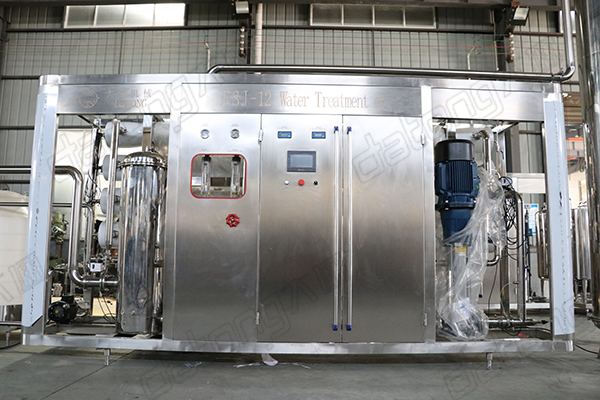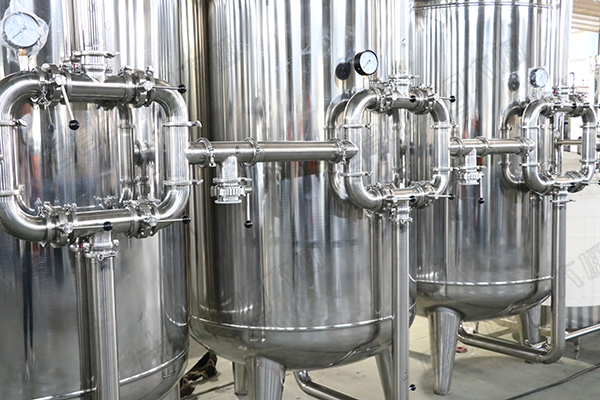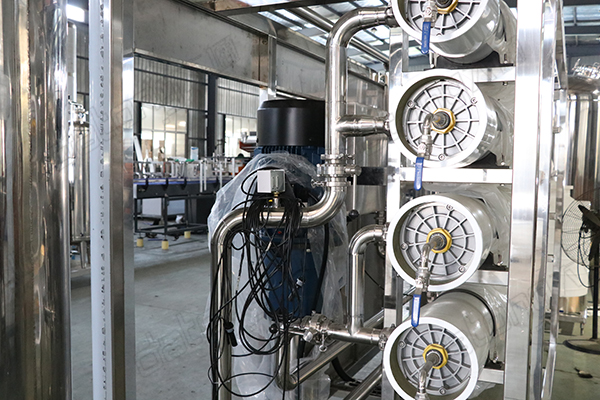Bottled Water Regulations
Views: 501
Author: Site Editor
Publish Time: 2021-07-07
Origin: Site
As far as the U.S. Food and Drug Administration (FDA) is concerned, "bottled water" is water intended specifically for drinking by humans, does not include any added carbonation or flavoring and is packaged in a sanitary, food-grade container. The FDA regulates bottled water as a packaged food item. FDA regulations for bottled water are more lax than the EPA (U.S. Environmental Protection Agency) regulations for municipal drinking water.

Package
FDA regulations for bottled-water safety start with the most basic regulation for all food products——bottled water must be packaged in a sanitary container and in a sanitary environment.
Source
Beyond the basic rules for packaged food, the FDA has specific rules for bottled water. First, it must come from an approved source, which doesn't mean the FDA goes and checks the source to make sure it's safe. It simply means the water must come from one of two places: a protected natural source, such as a spring or artesian well in which measures have been taken to assure against contamination by surface water; or a municipal source of drinking water (i.e. tap water).
Label
The FDA also has rules about how companies can label their bottled water. For instance, they are not allowed to flat-out lie about the water's source, and if the water originally came from an untreated municipal water source (water that wasn't potable when they bought it), they have to disclose that on the label.

State Regulations V.S. FDA Regulations
At one level down from federal regulation, which only affects water that travels between states, there is state regulation of the industry. Many states have bottled-water regulations that are stricter than the FDA's, requiring bottled-water companies to obtain a yearly license and submit to regular inspection of water sources and treatment facilities. Some states don't regulate bottled water at all.
IBWA's Regulations
By far the tightest regulating body overseeing the bottled-water industry is the industry itself, most notably in the form of the International Bottled Water Association (IBWA). The IBWA enforces voluntary self-regulation of its members, who produce about 80 percent of the bottled water purchased in the United States.
IBWA members must meet the requirements set forth in the IBWA Model Code, which includes disinfection in the form of reverse osmosis, filtration or distillation for any water drawn from a municipal drinking water source. (Companies using protected, natural sources are not required to disinfect the water.)
IBWA members must also submit to an unannounced facility inspection once a year by a third-party organization. One independent group that tests bottled water for quality and compliance is the National Sanitation Foundation (NSF), which runs a voluntary Bottled Water Certification Program that includes water-source and plant inspection and the testing of both water (for contaminants) and container-sealing processes.

You probably noticed a few things in the above discussion of regulations. For one thing, the FDA's and the states' regulations are the only ones that are not voluntary, and some states don't have regulations. So that leaves the FDA. And the FDA's regulations are based on the premise that bottled water is not a potential risk to public health.
In case you have been looking for a way to promote your product and create awearness, you need to check our water treatment purification system machines as we are available anytime. Kindly click here to purchase it from an experienced manufacturer.






